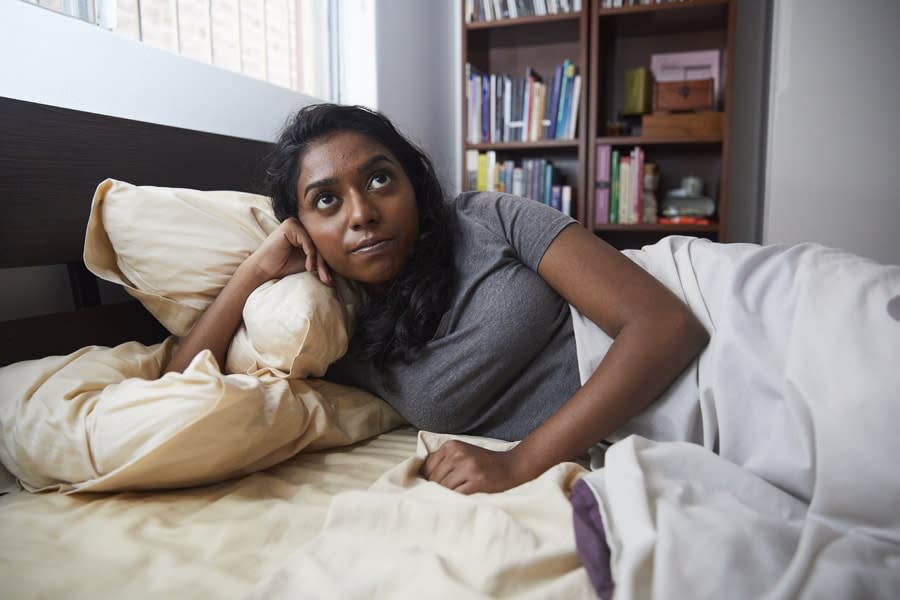How much sleep do I need?
Have you ever struggled to concentrate in your favourite class, been in a bad mood and snappy with people, or noticed your body is way more sore than usual after working out, and you aren’t sure why? The answer might be that you’re getting too little or too much sleep.
Why do I need sleep?
Sleep does so much more for you than just help you to recover your energy. It’s really important for your overall emotional, mental and physical health. It helps you to be at your best, whether that’s at school, on the sports field, or just going about your day-to-day life.
Without sleep, you can feel fatigued, run down, moody and just generally out of it – and while the effects of a great sleep may not be super obvious at first, a bad sleep can have a major impact on your day.
What’s a ‘normal’ amount of sleep?
While experts recommend a certain number of hours of sleep a night, ‘normal’ can look different for everyone.
Teens tend to need at least 8–10 hours, which is no surprise given how busy some days can be. School, sport, social events, chores, jobs, study – both the body and brain need plenty of rest to balance all of these activities.
As you get older and your physical growth slows, you’ll likely need less sleep, even though you’re just as active throughout the day. Young adults usually need about 7–9 hours of sleep a night.
How much sleep you need may be different from the recommended amount, for many reasons. For example, people with a chronic illness, a sleep disorder or other health issue may find they have unique sleep needs.
Whatever your ‘normal’ is, the important thing is to try and avoid either undersleeping or oversleeping (sleeping at least two hours less or more than your normal amount).
How do I know if I’m getting the amount of sleep I need?
If you’re sleeping for an optimum amount of time, you’ll likely notice that you’re:
concentrating and focusing on tasks better during the day
paying attention in class and retaining new information
feeling happier and are in a better mood
managing your stress more easily
feeling physically healthy and aren’t tired
making better decisions throughout the day
feeling more creative and ‘switched on’.
If you’re under- or oversleeping, you’ll likely notice that you’re:
feeling groggy in the morning and aren’t able to wake up easily
struggling to concentrate during the day
feeling drowsy, lethargic or sick during the day
forgetting things easily
in a grumpy or bad mood
falling asleep in the afternoons
unable to fall asleep easily the next night
underperforming at sport or physical activities.
Why am I struggling to sleep?
In a recent ReachOut study, we found there are a range of reasons why many young people are experiencing disrupted sleep. These reasons may include:
stress from juggling work, school and study
financial stress from trying to manage the cost of living
housing trouble or rental insecurity
time management issues caused by the demands of work, school, sports and a home/social life.
In other recent research, we also found that over 50 per cent of students are specifically having trouble sleeping as a direct result of study stress.
On top of these everyday stressors, disrupted sleep can be caused by changes to your physical and mental wellbeing. These issues can include:
mental health conditions such as anxiety and depression, which can both make it harder for you to sleep and be worsened if you don’t get enough sleep
sleep disorders such as insomnia, sleep apnoea and restless legs syndrome
changes to your natural body clock that make you want to sleep later or cause you to struggle to fall asleep at a reasonable time
poor sleep hygiene, especially too much screen time or gaming before bed
impacts from chronic illnesses or neurodiverse disorders like ASD and ADHD
use of stimulants (e.g. caffeine, alcohol, nicotine) or medications such as antidepressants.
Can I improve my sleep?
There are heaps of ways to level up your sleep game. If you’re looking for pointers, check out this article on how to get a good night’s sleep. It’s all about building better sleep hygiene, with tips on setting a sleep schedule, getting into a relaxing pre-bed routine, creating your own sleep sanctuary, and building healthy habits into your day.
But if you find that your sleep issues have been going on for a few weeks, a good next step is to chat with your GP. They can help to identify possible underlying causes, offer some initial advice and support, or connect you (if necessary) with another professional, like a sleep specialist or mental health professional.
What can I do now?
Check out these stories from young people about how they manage their sleep issues.
Find out more about sleep disorders, including signs, symptoms and causes.
Make an appointment with your GP if you’re looking for extra support with any sleep issues.

